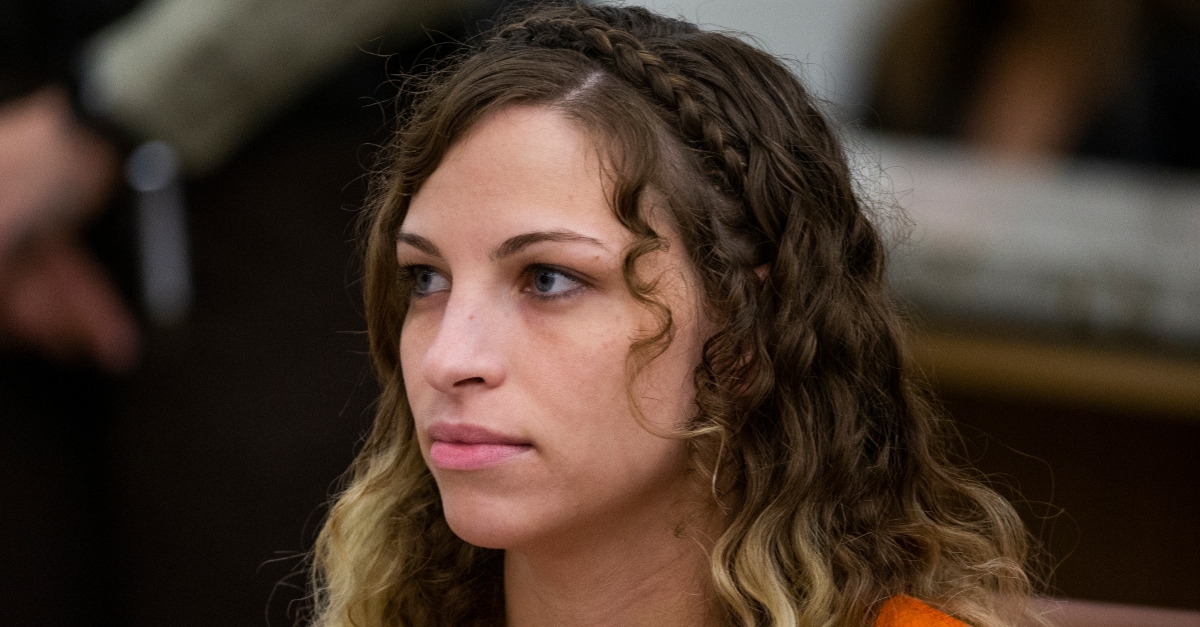Brittany Zamora gained national attention when her case unfolded in the media, sending shockwaves through local communities and raising questions about the education system. A former middle school teacher, Zamora's story is not just a tale of crime but also a reflection of deeper societal issues. The complexities surrounding her actions and the subsequent legal battles have sparked conversations about teacher-student relationships and the responsibilities of educators.
As the story of Brittany Zamora progressed, it became evident that this was not a straightforward case. The nuances of her motivations and the impact of her actions on her victims and their families created a whirlwind of discussions. In this article, we will delve into various aspects of Zamora's life, her background, the events that led to her arrest, and the public's reaction to the unfolding drama.
In the following sections, we will explore Brittany Zamora's biography, the details of her case, and the broader implications it has on society. The aim is to provide a comprehensive look at a story that continues to evoke strong emotions and provoke critical thinking about the roles of teachers and the protection of minors.
What is Brittany Zamora's Biography?
Brittany Zamora was born on June 25, 1988, in the United States. She attended college to pursue her passion for teaching, eventually obtaining a degree in education. Zamora began her career as a middle school teacher at Las Brisas Academy in Goodyear, Arizona. Her charm and dedication to her students initially made her a beloved figure within the school community. However, her life took a drastic turn that would forever alter her future.
| Detail | Information |
|---|---|
| Name | Brittany Zamora |
| Date of Birth | June 25, 1988 |
| Occupation | Former Middle School Teacher |
| Location | Goodyear, Arizona |
| Alma Mater | College Degree in Education |
| Criminal Charges | Engaging in sexual conduct with a minor |
| Current Status | Imprisoned |
What Led to Brittany Zamora's Arrest?
The shocking details of Brittany Zamora's case began to emerge in early 2018 when authorities were tipped off about inappropriate relationships between her and several students. Investigations revealed that Zamora had engaged in sexual activities with a 13-year-old student, which ultimately led to her arrest. The alarming nature of the allegations prompted a deeper inquiry into the possible extent of her misconduct.
As the investigation unfolded, it became clear that Zamora's actions were not isolated incidents. Reports surfaced indicating that she had developed relationships with multiple students, igniting a firestorm of controversy and concern within the community. Parents, educators, and law enforcement were left grappling with the troubling reality of a trusted teacher engaging in such behavior.
What Were the Consequences of Brittany Zamora's Actions?
The repercussions of Zamora's actions were severe and far-reaching. Not only did she face criminal charges, but her actions also had a profound impact on her victims and their families. The emotional and psychological toll on the students involved cannot be overstated. Many victims reported feelings of shame, confusion, and betrayal, as they struggled to come to terms with the betrayal of trust by someone they regarded as an authority figure.
In September 2019, Brittany Zamora was sentenced to 20 years in prison after pleading guilty to multiple counts of sexual conduct with a minor. Her case raised further questions about the systems in place to protect students and the role of educators in maintaining appropriate boundaries. The legal outcomes served as a reminder of the serious consequences that can follow such actions.
How Did the Public React to Brittany Zamora's Case?
The public reaction to Brittany Zamora's case was mixed and complex. Many expressed outrage at her actions, viewing them as a violation of trust and an abuse of power. Social media exploded with discussions and debates, as people tried to make sense of the situation. Some argued for more stringent measures to prevent such occurrences in the future, while others questioned the effectiveness of existing safeguards in the education system.
In the wake of the incident, schools across the country began to take a closer look at their policies regarding teacher-student interactions. Training programs aimed at preventing inappropriate relationships were implemented, highlighting the urgent need for vigilance in protecting students. The case of Brittany Zamora served as a cautionary tale, emphasizing the critical importance of maintaining appropriate boundaries within educational settings.
What Lessons Can Be Learned from Brittany Zamora's Story?
The story of Brittany Zamora offers valuable lessons about the responsibilities of educators and the importance of safeguarding students. Some key takeaways include:
- Importance of Boundaries: Educators must understand the significance of maintaining professional boundaries to foster a safe learning environment for students.
- Awareness and Training: Schools should invest in regular training for teachers and staff to recognize and prevent potential misconduct.
- Open Communication: Encouraging open dialogue between students and trusted adults can help identify and address concerns before they escalate.
- Support for Victims: Providing resources and support for victims of abuse is crucial for their recovery and healing.
What is Brittany Zamora's Current Situation?
As of now, Brittany Zamora remains incarcerated, serving her sentence for her crimes. The case continues to resonate with many, as it raises ongoing discussions about the responsibilities of educators and the protection of minors. While some may argue that Zamora's actions were an anomaly, others see it as a reflection of a systemic issue that needs to be addressed.
In conclusion, Brittany Zamora's story is a complex narrative that encompasses themes of trust, betrayal, and accountability. As society grapples with the implications of her actions, it is essential to reflect on the lessons learned and strive for a safer educational environment for all students. The ongoing discussions surrounding her case highlight the importance of vigilance and responsibility within the education system.


